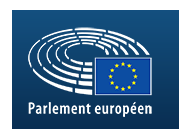Document type : article in Cheval Magazine
Author: Elodie Pinguet
Preview: A few days ago, a round table was organized at the Clairefontaine racecourse near Deauville by Ouest France and Paris Turf to discuss the issue of equine welfare.
A group of equestrian practitioners and regional stakeholders met at the racecourse to discuss equine welfare, including Hervé Morin, President of the Normandy Region, former jockey Jacques Ricou, the head of the Clairefontaine racecourse, François Grandcollot, and representatives from the Au-delà des pistes association. As summarized by our colleagues at Paris Turf, many issues were raised, including the use of the whip and public perceptions of the profession as dangerous. At the Clairefontaine racecourse, the issue of welfare had been addressed very early on. Particular care is taken over the state of the track, obstacles and surface. The horses can arrive the day before the race to allow greater comfort. The racecourse also has its own ambulance
The retraining of retired racehorses
Another important issue discussed was retraining. In flat racing, the second careers of racehorses have been established in particular through the services of the 'Au-delà de Pistes association. by promoting the skills of retrained racehorses and their placement in partner establishments where they will receive training for their new lives. Unfortunately, as François Grandcollot points out, it is hard to retrain all horses. Between trotting and flat racing, around 6,000 horses leave the circuit each year. The idea would be for horse owners (of racehorses and other working horses) to consider the future retraining of their animals from the moment of acquisition. "We are totally in favor of establishing a system whereby a horse entering training would see its owner set aside a sum of 500 euros for its future retraining," explains Alix Chopin, vice-president of Au-Delà des Pistes. "If an owner wants to look after his or her horse's career after its racing life is over, he or she can easily find solutions," adds the President of the Normandy Region, Hervé Morin.
Retraining in Trotting, which is more difficult to arrange, is nevertheless gradually being organized through the Passerelle Association.
Normandy, a land of horses and welfare
Normandy is well-known for its high numbers of horses, stud farms and breeding operations. It is quite natural that the region has, for several years, provided funds to support horses: "In Normandy, we are trying to develop our horse economy to maximum capacity, becoming one of the great world centres for horses. And I have the feeling that this is increasingly becoming a reality as the result of the huge investments made, which are indirectly contributing to animal welfare," explained Hervé Morin. For example, the equine campus at Cirale, with its state-of-the-art equipment, employs nearly 600 veterinarians and 70 researchers. There is also the Kinesia centre, with its swimming pool, solarium, etc., not forgetting the Equures label, which began in Normandy: "The region finances up to 80% of all those who embark on an environmental-development and animal-welfare approach through the Equures label. Of the 150 establishments to have gained the certification, 100 are in Normandy. Soon, the first French private veterinary school will be opening in Rouen. And, last, we should also mention the National Stud project at Le Pin, with its new tracks, its tourism element, and the training program it has developed on public safety, providing firefighters with specific training on the rescue of animals.




